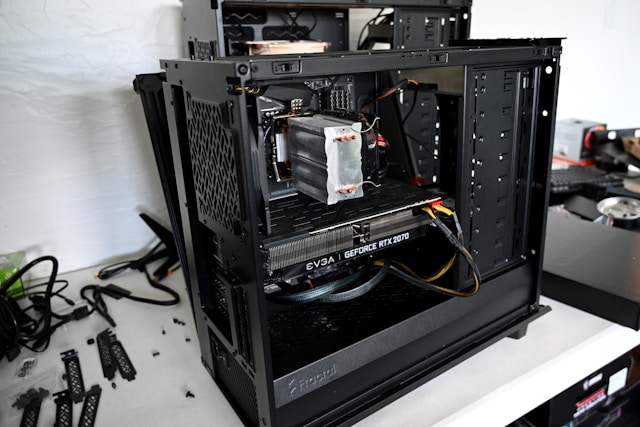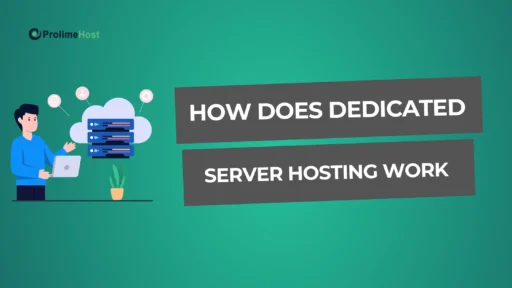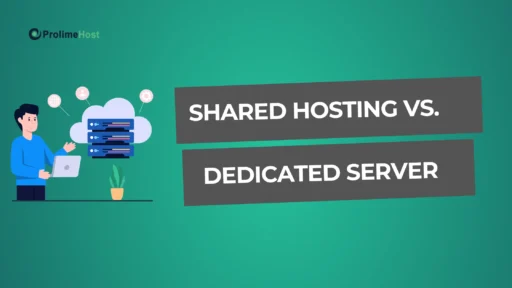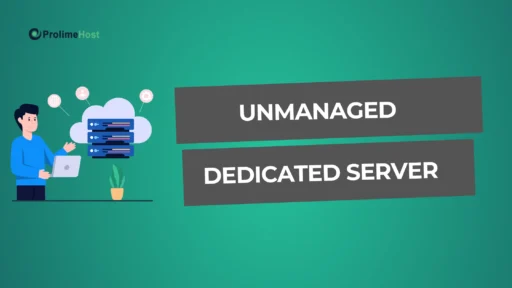
If you’ve ever relied on a free dedicated server and watched your website slow down or crash at the worst possible time, you know the frustration. Maybe it happened during a client pitch, a campaign launch, or just when traffic finally picked up.
Free hosting can be a great starting point, it’s low-risk, zero-cost, and easy to set up. But as your project grows, the cracks start to show: limited resources, poor uptime, lack of support, and no real control.
Free servers aren’t built for serious work, and relying on them too long can hurt your performance, credibility, and growth.
The good news? You don’t have to stay stuck. There are providers who let you test the waters for free, and when you’re ready, transitioning to a reliable, high-performance setup is easier than it sounds.
This guide shows you where to find trustworthy free options, when to move on, and how to avoid the pitfalls of underpowered hosting.
And if you’re ready for a server that is built for speed, control, and real uptime, Prolimehost offers the infrastructure and support serious projects need to thrive.
Explore your options below and see why it might be time to upgrade to hosting that keeps up with your ambition.
TL;DR – Where to Find a Free Dedicated Server
Don’t have time to read the full guide? Here’s a quick snapshot.
- Monovm: Free trial access for hands-on server testing
- AccuWeb Hosting: Free plans for students and developers
- Fosshost: Free servers for open-source projects
- Gigarocket: Community-based free hosting with manual setup
- Oracle Cloud Free Tier: Bare metal instances with full control
What is a Free Dedicated Server?
A free dedicated server is a physical server that hosting providers offer at no cost, typically for limited-time trials or under restricted conditions. Unlike shared or virtual hosting, a dedicated server gives you full access to the server’s resources including CPU, RAM, and storage without interference from other users.
However, “free” often comes with trade-offs. Providers may limit performance by capping bandwidth, reducing processing power, or restricting uptime. Some free plans are tied to promotional offers or broker agreements, which means they may lack the consistency and reliability required for high-traffic websites or resource-heavy applications.
Free dedicated servers can be useful for short-term testing, learning environments, or initial development phases where cost-saving is critical. They’re ideal for exploring how a dedicated environment works without upfront investment. But for business-critical operations or high-frequency usage like gaming, hosting multiple websites, or data-intensive tasks, a paid plan is more stable and scalable.
In short, a free dedicated server offers a risk-free way to test dedicated hosting, but long-term growth demands the reliability, performance, and support of a premium solution.
Limitations of Free Dedicated Hosting for Serious Projects
Free hosting is useful for testing or learning, but not for anything mission-critical or client-facing. Serious projects need reliable, secure, and fully controllable hosting, and that comes with a price.
Limited Performance
Free plans often throttle CPU, RAM, and bandwidth, leading to slow speeds and frequent downtime.
No Full Control
You may not get root access or the ability to install custom software or tweak server settings.
Unreliable Support
Customer service is minimal or non-existent. Critical issues may go unresolved for days.
Security Risks
Lack of regular updates, firewalls, and dedicated security features make free servers more vulnerable.
Shared Infrastructure
Even if labeled “dedicated,” free servers may be part of shared setups, reducing reliability.
No Custom Domain
You may be forced to use a generic subdomain, which weakens your brand credibility.
Forced Ads & Branding
Some free hosts inject ads into your site or display their branding, hurting professionalism.
No Scalability
Resources are fixed and limited. Growing projects can’t scale without migrating.
Trial Expiry or Hidden Limits
Many “free” plans expire quickly or include usage caps that block serious development.
Negative SEO Impact
Slow loading speeds, shared IPs, and downtime hurt your search visibility.
List of Top 5 Free Dedicated Servers to Explore

You don’t need to spend money just to test a dedicated server. Some platforms give you free access through trials or limited plans. These won’t power massive websites or apps, but they work great if you want to learn, build something small, or just mess around.
Here are five options that let you do that:
Monovm
Monovm gives you a chance to try dedicated servers through their trial offers. You won’t get top-tier specs, but it’s enough to see how things work behind the scenes. You can set up a simple site, test performance, or just learn how to manage a server from scratch.
They don’t hand these trials out automatically. You’ll need to request access and explain what you plan to do with it. If you get approved, you’ll have a good amount of control to explore and test.
AccuWeb Hosting
AccuWeb supports developers, students, and anyone who wants to learn. They don’t always offer free dedicated servers openly, but they do provide free accounts if you meet specific conditions. If you’re a student or working on a personal project, you have a good shot.
You’ll need to apply and sometimes prove you’re using the server for non-commercial or educational use. Once you’re in, you can run small experiments, practice your skills, or even host a demo project.
Fosshost (for Open Source Projects)
Fosshost helps people building open-source tools. If you’re working on a project that helps others and you’re sharing your code publicly, Fosshost can step in and provide real server power for free.
They run this service as a community effort. So, you’ll need to explain your project clearly and show that it’s open-source. If they accept it, they’ll give you full access to a strong dedicated server. You can host your app, run builds, or support a user base without paying anything.
Gigarocket
Gigarocket runs a tight community that gives out free hosting to users who contribute. You need to sign up on their forum, stay active, and follow the rules. If you do that, they may offer you access to VPS or even limited dedicated resources.
This works best if you already know your way around hosting and server management. Gigarocket doesn’t offer a point-and-click setup. You’ll handle everything manually. That said, it’s a great option if you want hands-on experience without the cost.
Oracle Cloud Free Tier (Bare Metal)
Oracle’s free tier includes access to bare metal instances. These act like full dedicated servers and give you full control. You don’t need to pay anything upfront, and you can start using it right away after signing up.
You’ll need to navigate a slightly more complex setup compared to shared hosting. But once you get it running, you can run apps, host sites, or build APIs on real hardware. The free tier includes a decent amount of resources, and you can always upgrade later if you outgrow the free version.
Why Businesses Choose Paid Dedicated Hosting Instead?

When it comes to hosting mission-critical websites, e-commerce platforms, or data-sensitive applications, businesses don’t take chances; they choose paid dedicated hosting for its reliability, flexibility, and performance.
Consistent, High-End Performance
In a paid dedicated hosting setup, all server resources, CPU, RAM, storage, and bandwidth, are dedicated to a single user. This eliminates slowdowns caused by shared traffic and ensures stable performance even during peak hours. For businesses, that means faster load times, better user experience, and higher conversion rates.
Full Control Over Configuration
Paid dedicated hosting gives you root-level access to your server. You can install any OS, run custom software, tweak performance settings, and deploy specialized security protocols. This level of customization is essential for businesses with unique operational or compliance needs.
Enterprise-Grade Security
With cyberattacks on the rise, businesses can’t afford weak security. Paid dedicated servers offer dedicated IP addresses, advanced firewalls, DDoS protection, and regular patching. For sectors like finance, healthcare, or ecommerce, this is a non-negotiable advantage.
High Uptime & Reliability
Paid hosting often guarantees 99.9% uptime backed by SLA. Managed services include real-time monitoring and automatic failover, ensuring your website or app stays live and responsive at all times.
Dedicated Technical Support
With paid hosting, businesses get access to expert support teams around the clock. Whether it’s a configuration issue or a critical failure, help is available within minutes, not hours or days.
Scalability Without Downtime
As your business grows, paid plans allow you to seamlessly scale your server resources without needing to migrate or reconfigure from scratch.
Better ROI in the Long Run
While free or cheap hosting may save money upfront, it often leads to hidden costs, lost traffic, limited support, or re-hosting due to technical limitations. Paid dedicated hosting protects your brand, customer trust, and future growth.
Best Use Cases for Free vs. Paid Hosting Plans
Not every website needs the same kind of hosting. If you’re just starting out, you might wonder whether free hosting is enough or if it’s worth paying for more features. The answer depends on what you’re building and how far you plan to go with it.
Free Hosting Makes Sense When:
You’re experimenting, learning, or building something small. For example, if you’re creating a personal blog, a student project, or a temporary landing page, free hosting can do the job.
It gives you a chance to get comfortable with website building tools without spending money. It’s also helpful for quick test environments or one-off projects where performance and branding aren’t a priority.
But keep in mind: free plans often come with ads, limited storage, slower performance, and minimal support. They’re great for getting started, but not built for serious growth.
Paid Hosting is Better When:
You’re running a business, launching a professional portfolio, or expecting real traffic. Whether it’s an e-commerce site, agency website, or content-heavy platform, you’ll need speed, security, uptime, and flexibility, all of which paid hosting delivers.
You can connect your own domain, access better customer support, and scale your site as traffic increases. Paid plans also give you more control over site customization and features.
Prolimehost’s Approach to Reliable Dedicated Server Hosting
When you need strong performance and zero slowdowns, you’ve got to start with the right setup. That means using hardware that doesn’t buckle under pressure. You need full access to the server’s power and a setup that can handle heavy workloads without breaking a sweat.
That’s exactly what dedicated servers give you.
Unlike shared or VPS hosting, dedicated servers give you full control. You get the whole machine to yourself. That includes CPU, RAM, storage, and bandwidth. Nothing gets shared. You won’t deal with other people’s traffic slowing you down. Your stuff runs steady, even during big traffic spikes.
You can also tweak the server however you want. Run special software. Lock things down tight for security. Match industry rules if your business needs that. No limits. You call the shots.
How Prolimehost Handles It
Prolimehost keeps things simple and fast. They don’t waste time. Most of the time, they get your server ready in minutes. You can pick what you want upfront. That includes processor types, storage setups, and other key parts. No guesswork.
Their servers live in data centers across North America, Europe, and Asia. That means faster speeds and better uptime for users around the world. They built the network to avoid slowdowns.
Need Support or Upgrades? No Problem
You can run the server yourself or get help with a fully managed setup. Either way, their team sticks with you. If you need to scale up later, you can. You won’t hit a wall or get stuck waiting.
That makes things a lot easier. You can grow when you need to. You can stay in control the whole time.
Bottom Line
If your business needs strong performance and real control, dedicated servers give you that edge. Prolimehost backs it with smart support and solid infrastructure. This is reliable hosting that helps you stay online and keep things running smooth.
Ready to get started?
Check out Prolimehost’s dedicated server plans and pick the setup that fits your needs. Get online fast and stay ahead.
How to Transition From Free to Paid Dedicated Hosting Smoothly
Switching from free to paid dedicated hosting?
Here’s what to do:
Check your Current Server
List websites, databases, emails, and anything else running.
Pick a Host
Choose one with full root access, strong uptime, clear support, and scalable plans. Migration help is a bonus.
Back up Everything
Files, databases, settings, media. Save copies in different places.
Set Up the New Server
Match your current setup. Same OS. Same software. Same settings.
Update DNS if Needed
If your IP or domain changes, fix the DNS and allow time for changes to take effect.
Test Everything
Use a staging environment. Check load speed, forms, emails, and other features.
Go Live
Once everything works, move the live site.
Watch the Performance
Use analytics to track speed, uptime, and traffic.
Paid hosting gives you better speed, security, and control.
Follow each step. Avoid downtime or errors.
Frequently Asked Questions (FAQs)
Are Free Dedicated Servers Reliable for Long-Term Use?
No. They’re unstable and not made for serious use.
Uptime, hardware, and support are all limited.
What Do Free Hosting Providers Typically Exclude?
Free hosting providers usually exclude essentials like full root access, DDoS protection, regular backups, advanced security, and customer support. Bandwidth and storage are also heavily restricted in most cases.
Can I Upgrade a Free Dedicated Server Later?
Yes, most providers offer upgrade paths from free to paid plans. However, the transition may require data migration or reconfiguration, so it’s important to confirm upgrade compatibility in advance.
Why Do Companies Prefer Paid Servers Despite Free Options?
Paid servers offer better performance, consistent uptime, dedicated support, advanced customization, and security. For any serious workload or business application, these benefits far outweigh the risks and limitations of free servers.
Conclusion
Hosting directly impacts how fast your site loads, how secure your data stays, and how confident your users feel. If you’ve made it this far, you already understand the difference between free and paid dedicated servers, and why that choice matters more than it seems.
You’ve seen what works for testing and what breaks when traffic spikes. You’ve explored real providers and real limitations. And if you’re serious about performance, uptime, and full control, you now know what to look for next and why platforms like Prolimehost are built for businesses that can’t afford to gamble on their infrastructure.
New tools, better plans, and smarter strategies keep showing up and we break them down in ways that actually help you move forward.
We don’t just share comparisons. We keep you ahead of the curve with clear insights, tested recommendations, and updates that matter.
So don’t let this be your last visit.
Come back whenever you need clarity on what’s next whether you’re scaling up, switching providers, or making smarter tech decisions.



